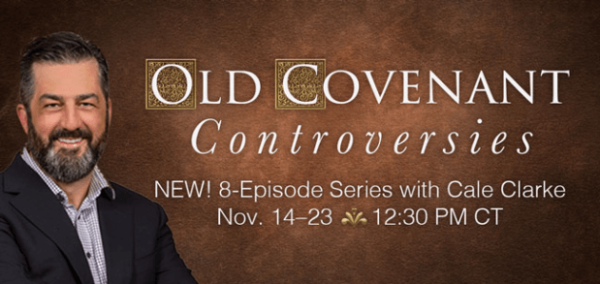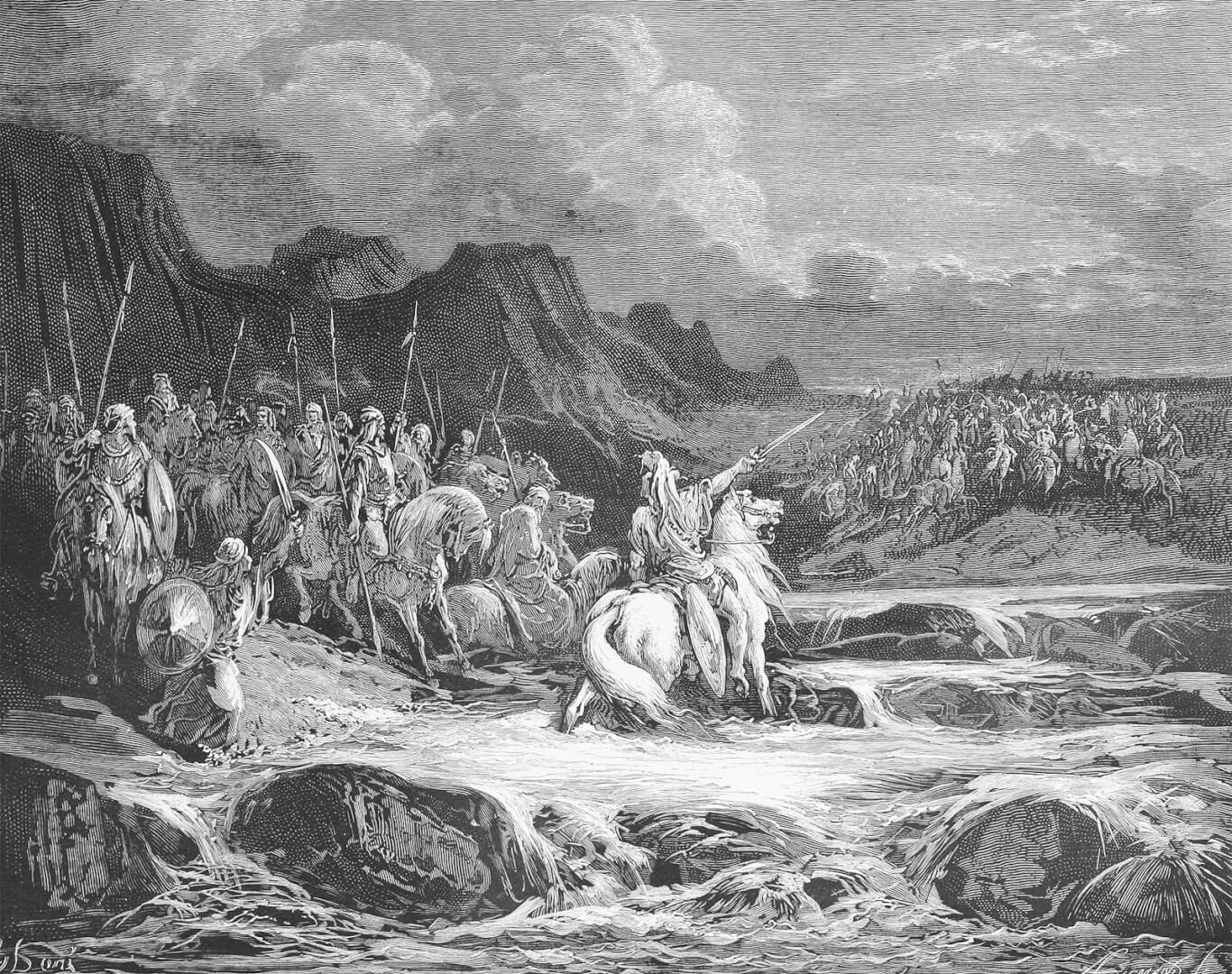When one thinks about the Christian view of God, the typical image conjured up in one’s mind is that of a peaceful, gentle, loving, caring God. Our God is one who came to bring light and joy, not violence and destruction. He is not prone to defects, faults, vices, or hatred. He doesn’t get angry nor is He vengeful.
So how do we reconcile the God we know as an all-merciful, all-loving God with the one we see in the Old Testament? There is only one God, so why is there such a difference between the Old Testament and the New? Why was God so much more violent? Cale continued his Old Covenant Controversies series on The Faith Explained with a segment on the violence we see in the Old Testament and how to interpret it.
Cale began by quoting from Tremper Longman III, who wrote about the way that God is portrayed as a divine warrior or soldier, devoted to fighting the evil of men and championing virtue:
“Many psalms utilize warfare language to describe God, and indeed, many were prayers sung before, during, and after a battle. In an early study, I identified forty-nine of the one hundred fifty psalms as having their original setting in the context of battle. The prophets too speak of God as a warrior, warning that if Israel does not repent of its sins, the divine warrior will come and administer judgment against his people. I eventually realized that virtually every biblical book, with very few exceptions—namely, Ruth, Ecclesiastes, and Song of Songs—speaks of God as a warrior.” (Confronting Old Testament Controversies)
After the tragedies of September 11th, 2001, scholars and thinkers began taking a closer look at this philosophy of treating God as a warrior, a furious creator exacting His revenge on the creatures who have disappointed Him. Atheists began to use this concept as a reason why Christianity is faulted. They painted God as a “moral monster”, incapable of reconciling His actions with His standards. Christians became embarrassed at this portrayal, confused at the disparity between God’s actions in the Old Testament versus the New.
And to be abundantly clear, there are many instances in which God is portrayed as a violent warrior or soldier. That claim is not disputed. These instances include but aren’t limited to the great flood, the Red Sea crossing in Egypt, the 10 Plagues, the Conquest of Canaan, the war against the Philistines, the defeat of Zedekiah at the hands of the Babylonians, the Psalms, the Lamentations, and the Book of Wisdom. In fact, God is portrayed as a warrior in every single Old Testament book except for Ruth, Ecclesiastes, and Song of Songs.
The claim that is disputed by Christians is not that those things happened or are documented, but that the God of the Old Testament is a different being than the God of the New Testament. There is no change of course between Moses and Jesus Christ. There is no redirection, only fulfillment.
“But there is no contrast between the Old and New Testaments. While we learn more about God and our relationship with him as we move to the New Testament, the development can be described by words like progress, growth, and deepening but not correction. We do not go off in a different direction, but rather we go further in the same direction.
If we want to follow Jesus and use him as a standard of our understanding of God, then let’s begin with the fact that the Jesus we meet in the Gospels does not disown the Old Testament and its ‘violent’ God but fully embraces the witness of the Old Testament. He does not retreat or distance himself from the Old Testament but cites it authoritatively in his debates with Jewish leaders who disagree with him.” (Confronting Old Testament Controversies)
Jesus doesn’t believe that He is the new and improved God, but rather that the actions of His Father in the Old Testament were a form of preparation and anticipation of His coming.
Listen to this full episode of Old Covenant Controversies above or on The Faith Explained show page! And be sure to catch the rest of the episodes live on Relevant Radio at 12:30pm CT from November 14 – November 23!



